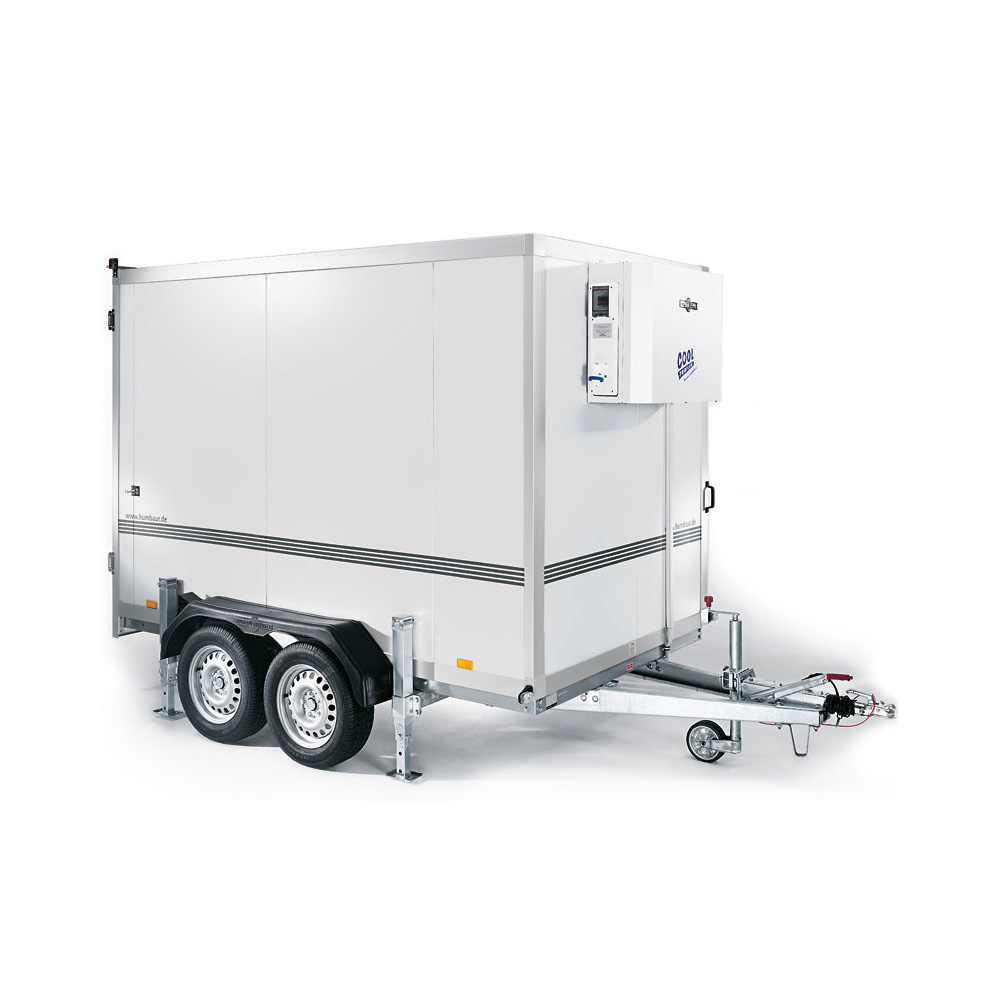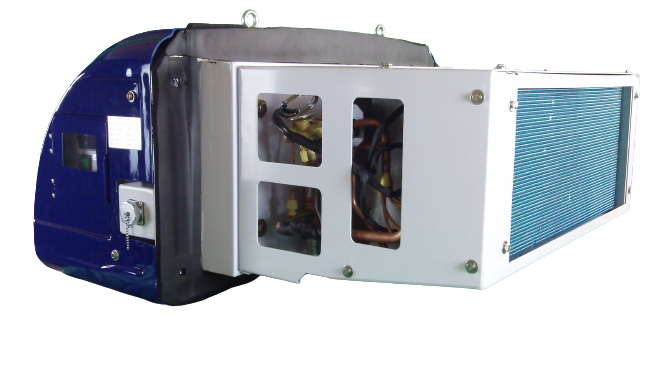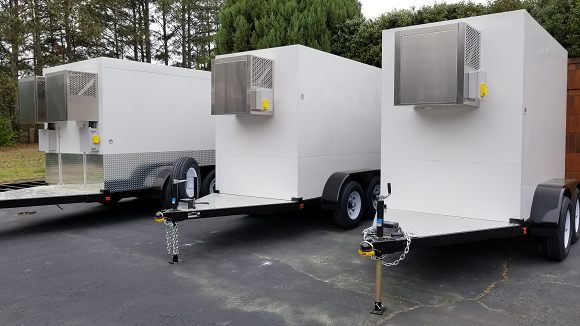Chill on the Go: Trailer Refrigeration Solutions for Mobile Air Conditioning Requirements
Chill on the Go: Trailer Refrigeration Solutions for Mobile Air Conditioning Requirements
Blog Article
Taking Full Advantage Of Performance: Just How to Select the very best Trailers Refrigeration
When it comes to picking the most appropriate refrigeration system for trailers, the value of taking full advantage of performance can not be overstated. In a market flooded with options, browsing the nuances of picking the best refrigeration service requires a nuanced method that considers different factors.
Power Effectiveness Factors To Consider
When assessing trailers refrigeration systems, prioritizing power efficiency is important for maximizing functional costs and decreasing environmental impact. Energy-efficient refrigeration systems can result in significant expense savings over time, making them a clever investment for services seeking to enhance their profits. By selecting trailers with high power effectiveness scores, companies can minimize their carbon impact and contribute to a much more sustainable future.

Normal maintenance and servicing are additionally necessary to guarantee that trailers refrigeration systems run at peak efficiency levels. Straightforward jobs like cleaning up coils, checking cooling agent degrees, and checking door seals can help prevent power waste and lengthen the lifespan of the equipment. Inevitably, focusing on power efficiency in trailers refrigeration systems is a tactical decision that can generate lasting advantages for both businesses and the setting.
Cooling Capacity Analysis
To make certain optimum efficiency of trailers refrigeration systems, a critical facet to review is the cooling capacity, which straight impacts functional effectiveness and temperature upkeep. Cooling down ability describes the ability of the refrigeration system to remove warmth from the trailer effectively. When analyzing cooling capability, elements such as the size of the refrigerated space, the preferred temperature range, insulation high quality, and the sort of freight being transported should be thought about. It is crucial to choose a refrigeration unit with a cooling capacity that matches the specific needs of the freight being carried to maintain the desired temperature consistently.
An accurate assessment of cooling down capacity assists protect against concerns such as temperature level fluctuations, irregular air conditioning, or insufficient cooling, which can compromise the top quality and safety and security of disposable goods. Furthermore, choosing a refrigeration device with the suitable air conditioning capacity can result in power financial savings by ensuring that the system runs efficiently without unneeded strain. Regular maintenance and tracking of the cooling capability are crucial to guarantee that the refrigeration system operates efficiently and fulfills the demands of the transport procedure.

Upkeep and Service Requirements
Guaranteeing normal upkeep and solution adherence is important for taking full advantage of the durability and effectiveness of trailers refrigeration systems. Routine maintenance assists determine and resolve prospective concerns prior to they escalate, decreasing the risk of expensive malfunctions this page and making certain continuous procedure. It is recommended to establish an extensive maintenance schedule that includes jobs such as evaluating insulation, looking for leakages, cleaning up condenser coils, and confirming temperature settings.
Along with normal upkeep, prompt maintenance in case of any malfunctions is important to avoid more damages and maintain ideal efficiency. Engaging certified professionals for fixings and maintenance makes sure that the refrigeration system is handled appropriately and successfully. Maintaining detailed records of maintenance and service background can help in tracking the system's efficiency gradually and recognizing any type of persisting problems that might require unique focus.

Cost-Effectiveness Analysis
On a regular basis evaluating the cost-effectiveness of trailers refrigeration systems is crucial for maximizing operational expenditures and general effectiveness. When performing a cost-effectiveness evaluation, it is critical to think about not only the in advance financial investment needed for the refrigeration system however also the long-lasting prices associated with maintenance, power consumption, and possible downtime (trailer refrigeration). Contrasting different versions and brand names based upon their initial cost, energy effectiveness ratings, and maintenance needs can offer valuable understandings into which system offers the very best value for your certain needs
Furthermore, computing the total cost of ownership over the anticipated life-span of the refrigeration device can help identify the most affordable option over time. Factors such as power effectiveness, integrity, and ease of maintenance need to all be taken into consideration when assessing the general cost-effectiveness of a trailers refrigeration system.
Tailored Solutions for Business Requirements
When helpful hints maximizing operational costs and effectiveness in trailers refrigeration systems, tailoring remedies to satisfy particular business needs ends up being paramount. trailer refrigeration. Each service has actually special needs based on the nature of its operations, the types of goods being delivered, and the ranges traveled. To make sure the refrigeration system operates efficiently, it is crucial to take into consideration factors such as the needed temperature range, insulation needs, power effectiveness, and maintenance regularity
Tailored services can involve selecting the appropriate refrigeration system size to match the trailer measurements, choosing in between electric or diesel-powered systems based on use patterns, and integrating telematics for real-time surveillance. For businesses that frequently transport temperature-sensitive items over cross countries, buying dual-zone refrigeration systems or multi-temperature systems may be beneficial. In addition, tailoring the control setups to align with specific temperature needs and carrying out remote monitoring capabilities can boost functional control and effectiveness.
Final Thought
In conclusion, when picking a refrigeration trailer, it is necessary to focus on power performance, cooling capability, upkeep requirements, and cost-effectiveness. Tailoring the choice his comment is here to meet specific service requirements can cause maximized efficiency and minimized operating expenses. By very carefully considering these variables, businesses can optimize efficiency and ensure that their refrigeration needs are satisfied successfully.
When assessing trailers refrigeration systems, focusing on power performance is critical for optimizing operational costs and minimizing environmental impact. Ultimately, focusing on power effectiveness in trailers refrigeration systems is a strategic choice that can generate long-term advantages for both companies and the environment.
To make certain optimal efficiency of trailers refrigeration systems, an important facet to evaluate is the cooling ability, which straight influences operational effectiveness and temperature level upkeep (trailer refrigeration).Guaranteeing normal upkeep and solution adherence is critical for making best use of the long life and efficiency of trailers refrigeration systems. To guarantee the refrigeration system works ideally, it is crucial to consider elements such as the needed temperature level range, insulation demands, power effectiveness, and upkeep frequency
Report this page